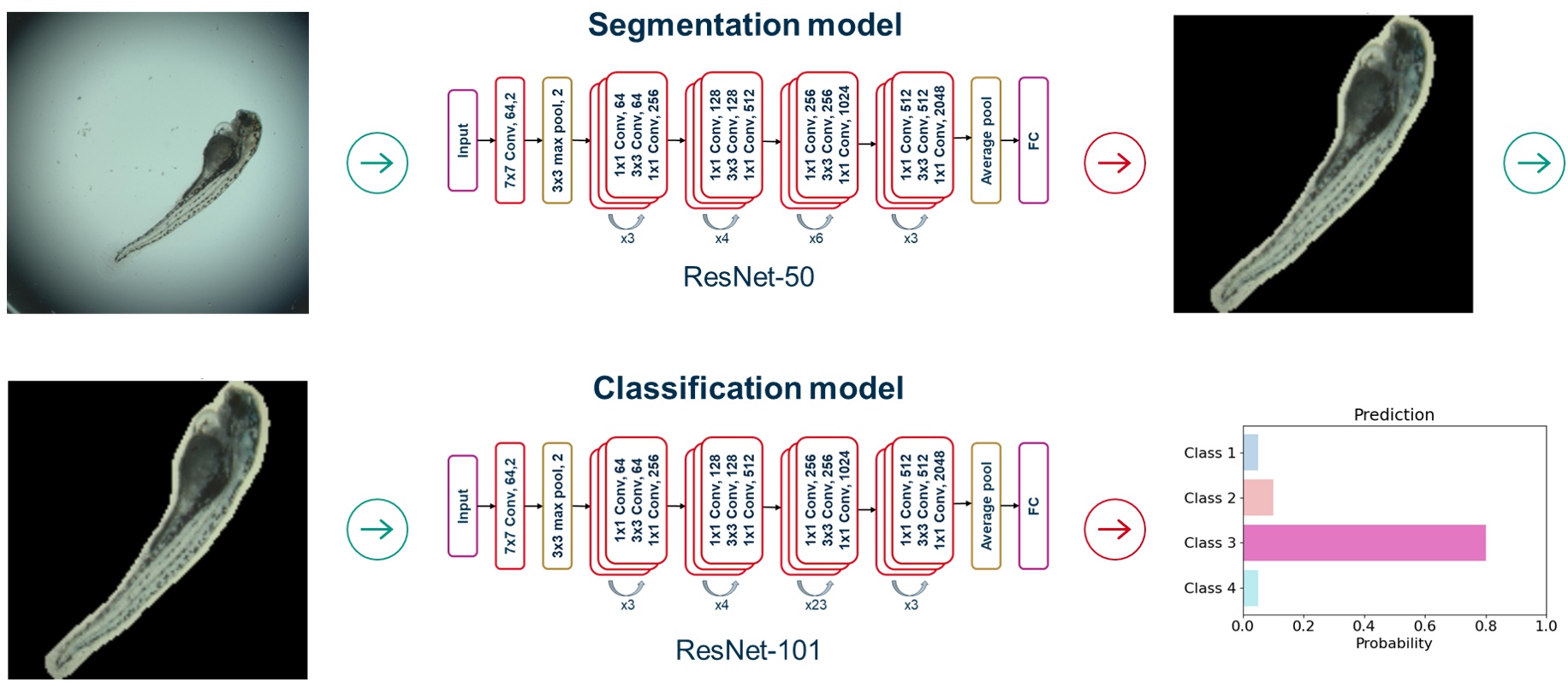Machine learning-based staging of radiation damage in zebrafish embryos in terms of oedema
- chair:Medical Imaging for Modeling and Simulation
- type:Bachelor or Master Thesis
- tutor:
Motivation
 Cancer remains one of the leading causes of premature death worldwide, and radiotherapy plays a critical role in treatment, either as a standalone approach or in combination with other therapies. Remarkably, over 70% of cancer patients undergo radiotherapy, highlighting its importance as a key area of research.
Cancer remains one of the leading causes of premature death worldwide, and radiotherapy plays a critical role in treatment, either as a standalone approach or in combination with other therapies. Remarkably, over 70% of cancer patients undergo radiotherapy, highlighting its importance as a key area of research.
In recent decades, advancements in radiotherapy have aimed to maximize tumor control while minimizing damage to healthy tissues. A promising innovation in this field is FLASH radiotherapy, an ultra-high dose rate technique. Preclinical studies have demonstrated that FLASH significantly reduces damage to healthy tissues without compromising tumor control, making it a breakthrough with transformative potential.Task
The objective of this project is to develop a machine learning-based classification model that can identify and stage zebrafish embryos according to the severity of radiation-induced oedema. The work involves designing and implementing a data processing pipeline, exploring different model architectures, optimising hyperparameters and evaluating the model's performance to ensure accurate and reliable results.Additional notes:
• A foundational level of Python proficiency is required for this project.
• Prior knowledge of Machine Learning is beneficial.
• Experience in image processing is beneficial.
• Knowledge of medical imaging is advantageous.
If you are interested in this project or would like to know more about it, don't hesitate to email me at mark.arndt@kit.edu.

